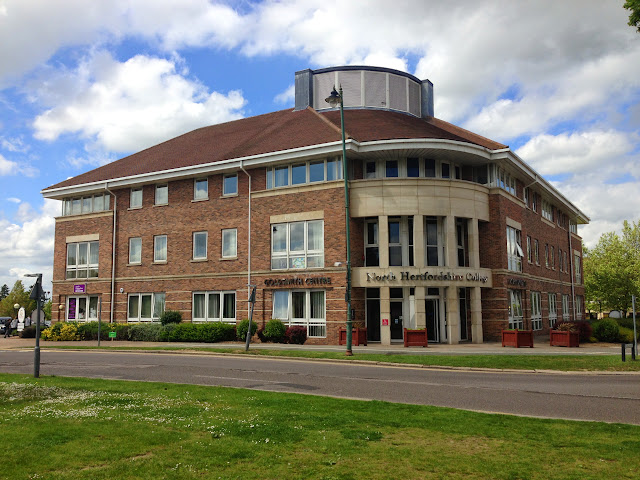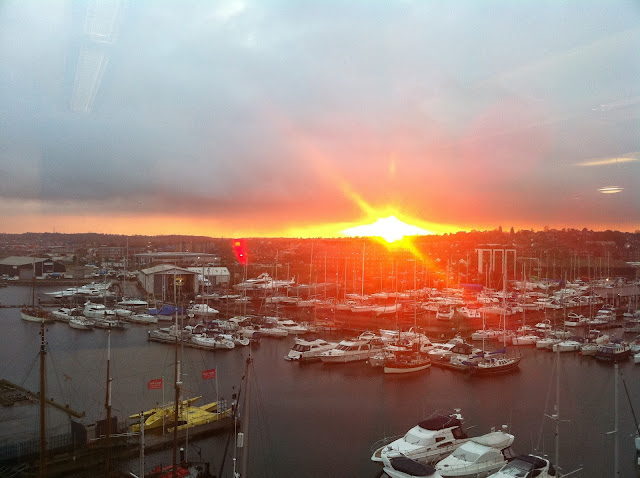Become like water my friend.
Check out the quote below from the late Bruce Lee:
It encompasses what I have been thinking about with regards to my course observations and what I have learnt so far about teaching methods, session plans, activity structure etc
My train of thought has been building over the last few weeks as I've been inundated with methods and strategies, Vygotsky, Laurillard, Collis and Kolb etc It's mounted to a single question I was asked to come up with to ask a guest speaker for a webinar this morning.
The question was this - 'Do you think that there is too much emphasis on teaching methods and strategies and not enough around the skills needed to read both learner and environment then to subsequently adapt?'
Due to technical reasons (speakers audio cutting out) I couldn't really follow massive flows of information, however I think he agreed, the following is what I picked up around the edges. When observing others we must devoid any personal opinions or comparisons to our own methods. The methods we are observing may well be valid for that type of session or group of students. We should be asking questions to those being observed as to what rationale they have for using certain methods, or avoid certain methods even.
I did question though that those methods used by that person may well change from observation to observation, surely? I mean this is how I facilitate the sessions and workshops I run. (completely ignoring the advice of comparing to my own methods :) )
When I walk into a session there are many variables that would change the way I ran the session. I could have one student, I could have 80. I could have 30 students looking at me pens in hands ready to go, or I could have 30 students having a little chat and are a bit giggly. Now, personally I would change the way I facilitated those sessions.
The pen in hands students that are poised to go will be greeted with a heavier emphasis on facts or statistics, terminology and use. Whereas the giggling chatty group would be greeted with more of an opportunity to debate using group discussion and metaphor. I can only do this by reading the room and the information the students give me. I don't have publications or articles to tell you there's any reason for these shifts, It's from my personal experience, verbal and non verbal feedback from students attending the sessions I run.
For instance, one of the things I have been doing recently to aid myself 'reading the room' is asking the question 'What are you looking to take from this session?' You may find some people are already knowledgable, some maybe less knowledgable than you had hoped. You may even get told a specific reason or element a student is interested in. You can raise this reason as an example when explaining content to help 'tick-off' that students query.
Don't get me wrong, I do have objectives, session activities and ultimately a plan for each workshop but I feel there has been too much emphasis, for me, on the middle bit. The methods used to teach certain activities. Rather than the abilities needed to adapt to get to the end objectives 'What will I learn as a student?'.
Now I understand that knowing what methods are out there for teaching and learning will absolutely now doubt help me gauge what method, or tool, to use at the appropriate moment. Hence the reason I'm on this course :)
It's funny, I used 'working on my motorbike engine' as a metaphor for learning as my first reflective piece for this course, and as I've been writing this post I've come to see the connections. The teaching methods and strategies I'm learning about sit right there.. in my tool box. The subject, learners and environment sit in front of me in my garage as the motorbike. I have to select the right tool at the right moment to accomplish what I need to do. The variation of students and class dynamics is simply me looking at the bike and deciding what I want to fix and what tool I need to use to do this.
It may be that I'm coming from a supportive facilitator role rather than a fully fledged academic lecturer, hence the reason to be a bit more blasé about my approaches, I do feel however that it's important for me to know what works.. for me. Not for my observers. So bring on the questions, I'm ready :)
I'm going to leave it there as I can smell burning from my gears working overtime, but I will leave you with another quote from Bruce Lee.
“The great mistake is to anticipate the outcome of the engagement; you ought not to be thinking of whether it ends in victory or defeat. Let nature take its course, and your tools will strike at the right moment.” - Bruce Lee
 |
| Bruce Lee in 1946 - Unknown |
My train of thought has been building over the last few weeks as I've been inundated with methods and strategies, Vygotsky, Laurillard, Collis and Kolb etc It's mounted to a single question I was asked to come up with to ask a guest speaker for a webinar this morning.
The question was this - 'Do you think that there is too much emphasis on teaching methods and strategies and not enough around the skills needed to read both learner and environment then to subsequently adapt?'
Due to technical reasons (speakers audio cutting out) I couldn't really follow massive flows of information, however I think he agreed, the following is what I picked up around the edges. When observing others we must devoid any personal opinions or comparisons to our own methods. The methods we are observing may well be valid for that type of session or group of students. We should be asking questions to those being observed as to what rationale they have for using certain methods, or avoid certain methods even.
I did question though that those methods used by that person may well change from observation to observation, surely? I mean this is how I facilitate the sessions and workshops I run. (completely ignoring the advice of comparing to my own methods :) )
When I walk into a session there are many variables that would change the way I ran the session. I could have one student, I could have 80. I could have 30 students looking at me pens in hands ready to go, or I could have 30 students having a little chat and are a bit giggly. Now, personally I would change the way I facilitated those sessions.
The pen in hands students that are poised to go will be greeted with a heavier emphasis on facts or statistics, terminology and use. Whereas the giggling chatty group would be greeted with more of an opportunity to debate using group discussion and metaphor. I can only do this by reading the room and the information the students give me. I don't have publications or articles to tell you there's any reason for these shifts, It's from my personal experience, verbal and non verbal feedback from students attending the sessions I run.
For instance, one of the things I have been doing recently to aid myself 'reading the room' is asking the question 'What are you looking to take from this session?' You may find some people are already knowledgable, some maybe less knowledgable than you had hoped. You may even get told a specific reason or element a student is interested in. You can raise this reason as an example when explaining content to help 'tick-off' that students query.
Don't get me wrong, I do have objectives, session activities and ultimately a plan for each workshop but I feel there has been too much emphasis, for me, on the middle bit. The methods used to teach certain activities. Rather than the abilities needed to adapt to get to the end objectives 'What will I learn as a student?'.
Now I understand that knowing what methods are out there for teaching and learning will absolutely now doubt help me gauge what method, or tool, to use at the appropriate moment. Hence the reason I'm on this course :)
It's funny, I used 'working on my motorbike engine' as a metaphor for learning as my first reflective piece for this course, and as I've been writing this post I've come to see the connections. The teaching methods and strategies I'm learning about sit right there.. in my tool box. The subject, learners and environment sit in front of me in my garage as the motorbike. I have to select the right tool at the right moment to accomplish what I need to do. The variation of students and class dynamics is simply me looking at the bike and deciding what I want to fix and what tool I need to use to do this.
It may be that I'm coming from a supportive facilitator role rather than a fully fledged academic lecturer, hence the reason to be a bit more blasé about my approaches, I do feel however that it's important for me to know what works.. for me. Not for my observers. So bring on the questions, I'm ready :)
I'm going to leave it there as I can smell burning from my gears working overtime, but I will leave you with another quote from Bruce Lee.
“You must be shapeless, formless, like water. When you pour water in a cup, it becomes the cup. When you pour water in a bottle, it becomes the bottle. When you pour water in a teapot, it becomes the teapot. Water can drip and it can crash. Become like water my friend.” - Bruce Lee



Comments
Post a Comment